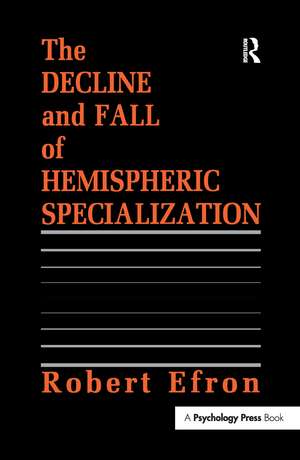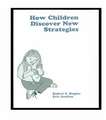The Decline and Fall of Hemispheric Specialization: Distinguished Lecture Series
Autor Robert Efronen Limba Engleză Paperback – 14 iun 2016
Preț: 325.34 lei
Preț vechi: 371.71 lei
-12% Nou
Puncte Express: 488
Preț estimativ în valută:
62.25€ • 65.23$ • 51.46£
62.25€ • 65.23$ • 51.46£
Carte tipărită la comandă
Livrare economică 11-25 aprilie
Preluare comenzi: 021 569.72.76
Specificații
ISBN-13: 9781138989023
ISBN-10: 1138989029
Pagini: 134
Dimensiuni: 152 x 229 mm
Greutate: 0.45 kg
Ediția:1
Editura: Taylor & Francis
Colecția Psychology Press
Seria Distinguished Lecture Series
Locul publicării:Oxford, United Kingdom
ISBN-10: 1138989029
Pagini: 134
Dimensiuni: 152 x 229 mm
Greutate: 0.45 kg
Ediția:1
Editura: Taylor & Francis
Colecția Psychology Press
Seria Distinguished Lecture Series
Locul publicării:Oxford, United Kingdom
Public țintă
ProfessionalCuprins
Contents: The Decline of Hemispheric Specialization. The Fall of Hemispheric Specialization. Life After Hemispheric Specialization.
Recenzii
"Dr. Efron must be applauded for the creation of such a brilliant work. This book will prove invaluable to any teacher who aims to help students understand hemispheric specialization and would also serve as an excellent supplemental text for any course in neuropsychology. Throughout the text, there is a remarkable clarity of logic..."
—The Psychological Record
"...presents a focused, intense critique of the presently popular assumption that left and right performance asymmetries reflect hemispheric specialization."
—Contemporary Psychology
"Efron has produced compelling reasons to be skeptical of the claims of 'left-brain, right-brain' advocates, and for those who needed no convincing, some elegant and powerful ammunition."
—American Scientist
"...a stimulating and readable critique of a very popular topic."
—American Journal of Psychology
—The Psychological Record
"...presents a focused, intense critique of the presently popular assumption that left and right performance asymmetries reflect hemispheric specialization."
—Contemporary Psychology
"Efron has produced compelling reasons to be skeptical of the claims of 'left-brain, right-brain' advocates, and for those who needed no convincing, some elegant and powerful ammunition."
—American Scientist
"...a stimulating and readable critique of a very popular topic."
—American Journal of Psychology










